The unlikely rise of Ian Ward: From cleaning aircraft to cricket’s most popular presenter
The presenter tells Vithushan Ehantharajah of his journey from country cricket to the small screen – via stints working at a petrol station, behind a bar and cleaning aircraft

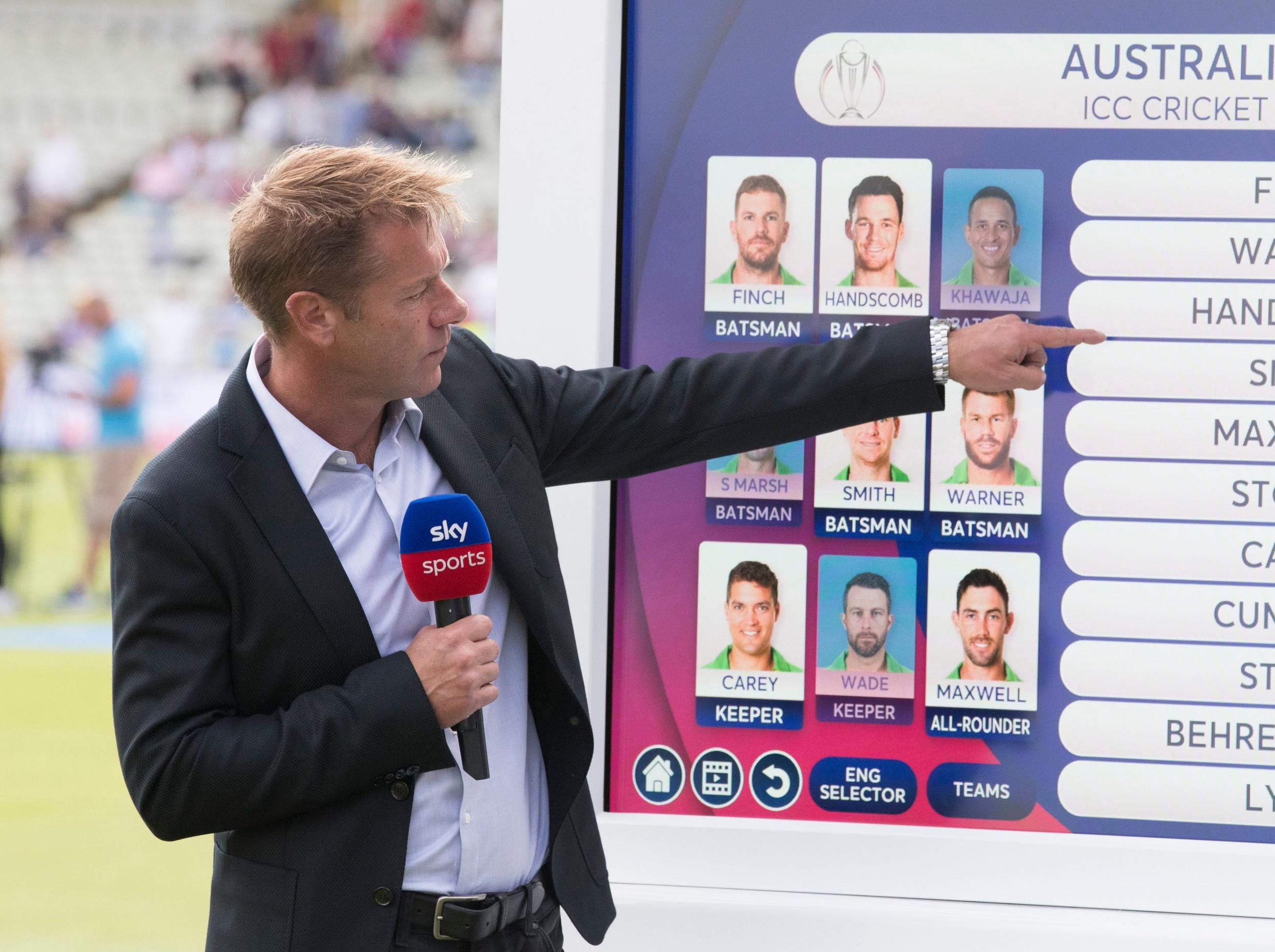
Your support helps us to tell the story
From reproductive rights to climate change to Big Tech, The Independent is on the ground when the story is developing. Whether it's investigating the financials of Elon Musk's pro-Trump PAC or producing our latest documentary, 'The A Word', which shines a light on the American women fighting for reproductive rights, we know how important it is to parse out the facts from the messaging.
At such a critical moment in US history, we need reporters on the ground. Your donation allows us to keep sending journalists to speak to both sides of the story.
The Independent is trusted by Americans across the entire political spectrum. And unlike many other quality news outlets, we choose not to lock Americans out of our reporting and analysis with paywalls. We believe quality journalism should be available to everyone, paid for by those who can afford it.
Your support makes all the difference.On the evening of 14 March, 2001, Ian Ward was tucked up in bed, exhausted.
He had just returned from a fruitful England A tour against West Indies, picking up 689 runs, three hundreds, an average of 68.90 and the strongest of hints a Test cap that summer was in the offing.
But, after two-and-a-half months in the Caribbean, the only thing on his mind right then was sleep. Before he could drift off, his wife called upstairs. “It’s someone from Sky on the phone.”
Ahead of their studio coverage of the third Test between England and Sri Lanka, one of their pundits had pulled out last minute. Unable to find an available replacement from their usual call sheet, they turned to their confirmed studio talent, Charles Coville and Mark Butcher, to see if they had any ideas. Butcher, a teammate of Ward’s at Surrey, made the suggestion.
Bleary-eyed, Ward picked up the phone to the personal assistant of Barney Francis, in charge of Sky Sports cricket coverage at the time, who asked if he was available. He mulled it over, and decided against it. And then said yes.
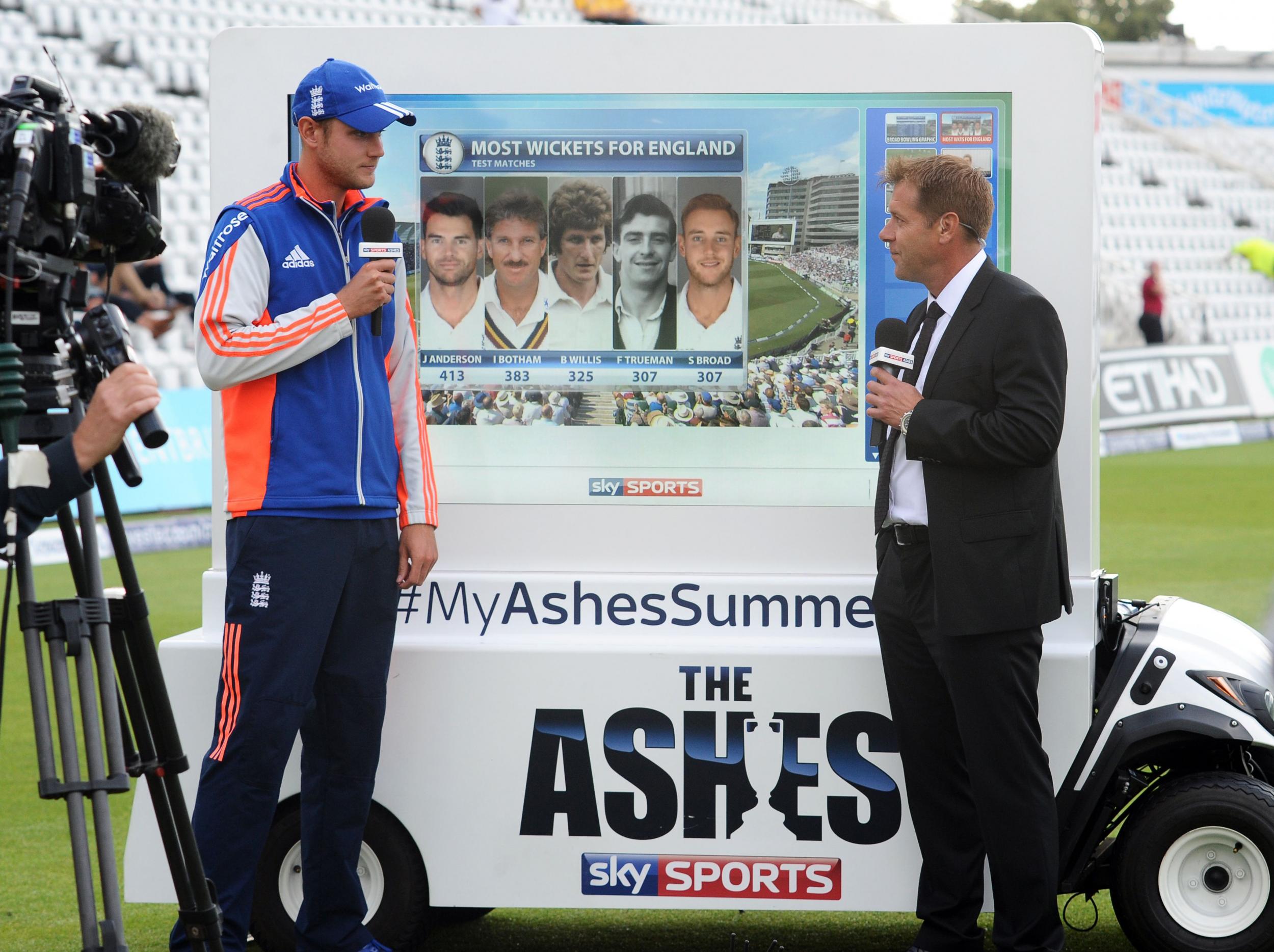
“To this day, I don’t know why,” Ward tells The Independent. He maintains everything, from his physical state to his immediate reasoning was preparing him for a firm “no”.
“I was absolutely knackered. Cooked. And I didn’t think anybody wanted to hear my opinions.” He was thanked profusely and told a car would pick up in three hours. It was 10:30pm.
He would receive another call a few months later informing him of a Test call-up. But almost 20 years on, as the new frontman of English cricket, it is clear which was the more live-changing phonecall.
Perhaps the highest compliment you could pay Ward is his ascension as Sky’s marquee host happened quietly. There was no dramatic changing of the guard, no elaborate handing over of the microphone. Just one day, he was going about his business in front of the Sky cart, asking James Anderson and his fingers on a seam or Ben Stokes about another piece of performative absurdity, and we all just said, “Wardy’s good, isn’t he?”
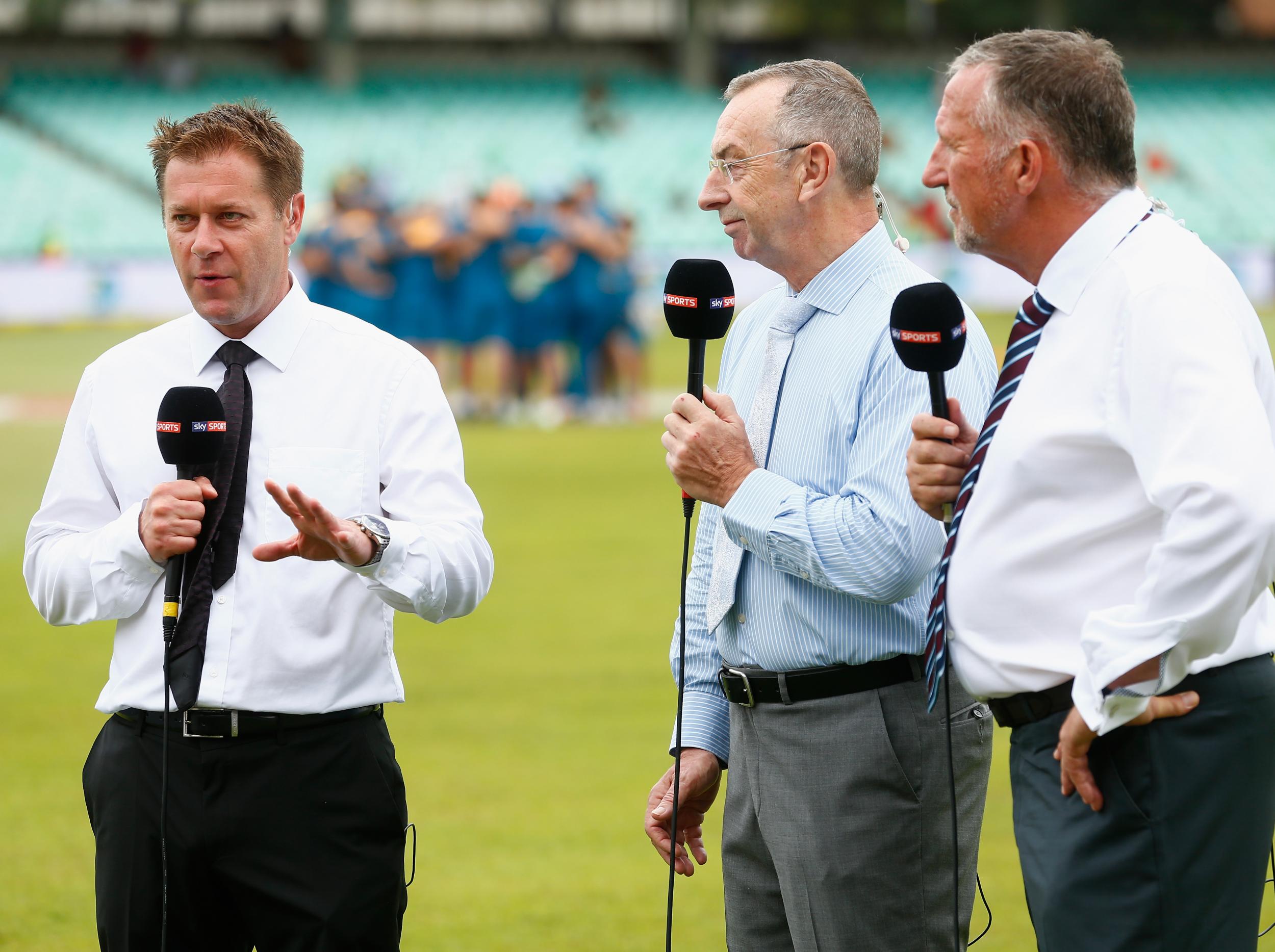
It was that first visit to the studio that sowed the seeds of a broadcasting career. Ward was wowed by the scale of the operation at Sky, even when covering a series remotely. The focus was still on playing, but his eyes had been opened to a new industry.
He continued to work for the broadcaster intermittently as a player, including the start of the 2001 summer when he earned all five of his Test caps. Nine innings against Pakistan and Australia, 129 runs and, somehow, three different captains was the left-hander’s lot.
The domestic record, mind, was one to envy. The majority of his 8,575 first class runs and 23 hundreds came for Surrey, before a brief stint at Sussex until he called it quits in 2005 at the age of 33.
Despite the “early finish”, the last eight years of his career was spent making up for lost time. Having come through the ranks at Surrey, he made his professional debut in the summer of 1992 only to be sacked at the end of it, aged 20.
I was in the pub a few months ago and the bloke behind the bar turned to my mate and said I was exactly as I am on TV, just without the beer and fag in hand
He wrote to the 18 counties and got little back. “I went off and had trials with Gloucestershire - they didn’t want me back. I had a couple of games at Worcestershire 2s and did okay but without playing spectacularly. I even played with Andy Flower who was in the 2s at the time. Imagine that? But yeah, none of them were interested.
So began five years of, well, everything else.
“I played a bit of club cricket and helped out Neil Stewart - Alec’s brothers – at an indoor cricket centre. I worked at a petrol station, behind a bar. I cleaned aircraft. Not cleaning the windshields with a sponge and bucket. But the insides - going in and clearing the mess in there after long haul flights.
“Seriously, we’ve all done long-haul flights. Next time you’re on one, look back when you’re going along. The mess that is left behind… fuck. That wasn’t much fun. But anything to pay the rent.”
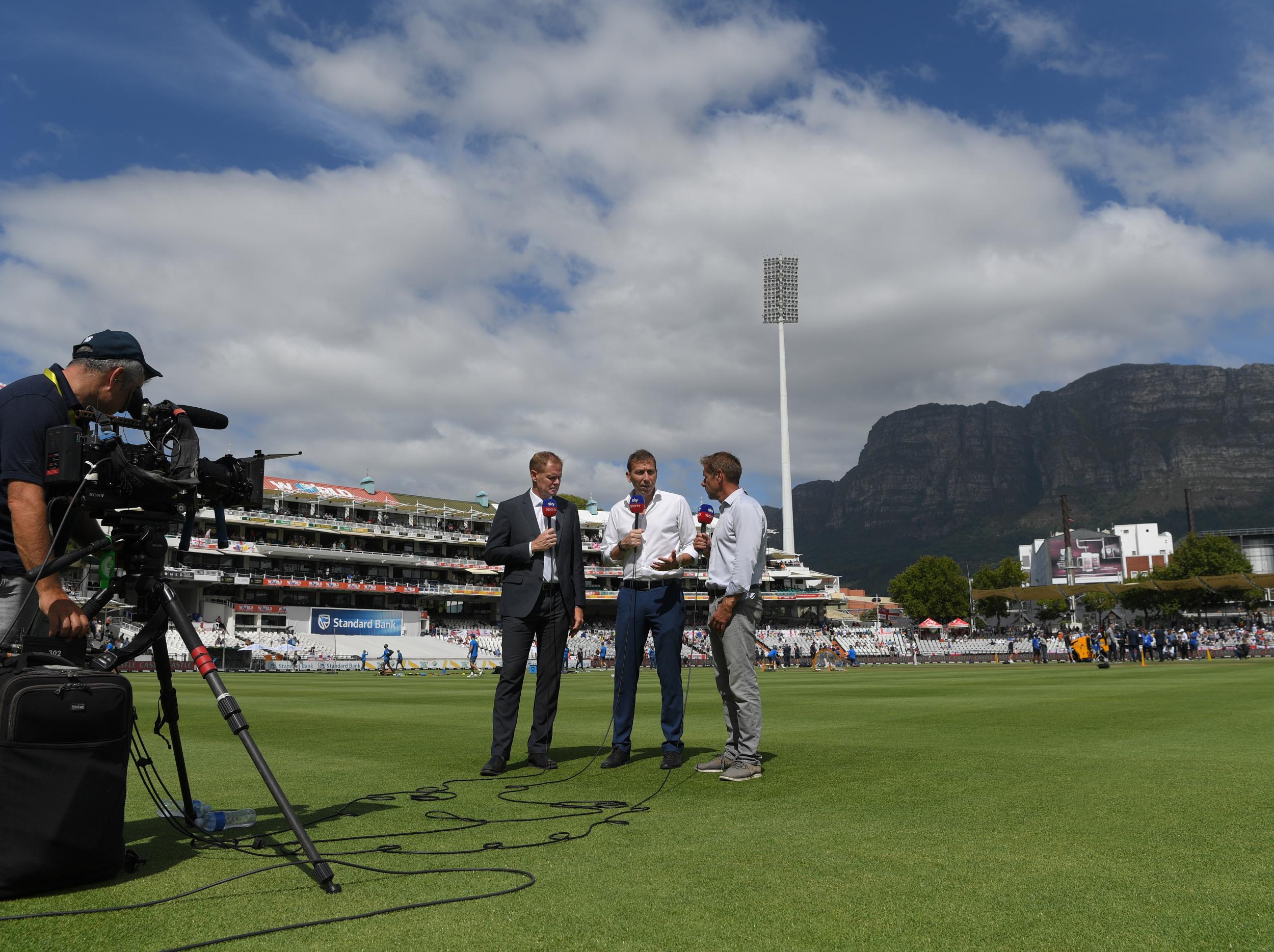
Typically it was another call that offered another lifeline. Surrey’s second team coach Tony Piggott got in touch having seen Ward’s numbers in club cricket to offer him a trial match. “Again, I went to say no,” says Ward. “But more in the ‘no - fuck you, Surrey’ type, which I appreciate wasn’t very mature.” Yet again Ward replied otherwise, this time prompted by a faint but familiar voice.
"While I was on the phone to Tony, I heard someone in the background. It was Grahame Clinton - the man who had sacked me at Surrey. Clinton asked who Piggott was he on the phone to. ‘Ian Ward’. And Clinton goes, ‘well I suppose he will do’. So I said I’d be there, rocked up and scored a hundred!”
What followed was years of runs in south London and three Championship titles in four years between 1999 and 2002. He joined Sussex at the end of 2003, finally ending his time with Surrey in unsavoury fashion though underpinned with great sadness at the passing of teammate and friend, Ben Hollioake. The stint at Hove would only last two seasons and, as cricket moved from Channel Four to Sky Sports outright, Ward was offered a more permanent gig. He finished with an average above 40.
Swapping the middle for the studio did see an end to the graft. He’d watch other presenters for tips. Got used to the producer's talkback in his ears. Practised autocues until he realised he was fighting a losing battle and so ensured he had intro, links and outros memorised so he could do without them.
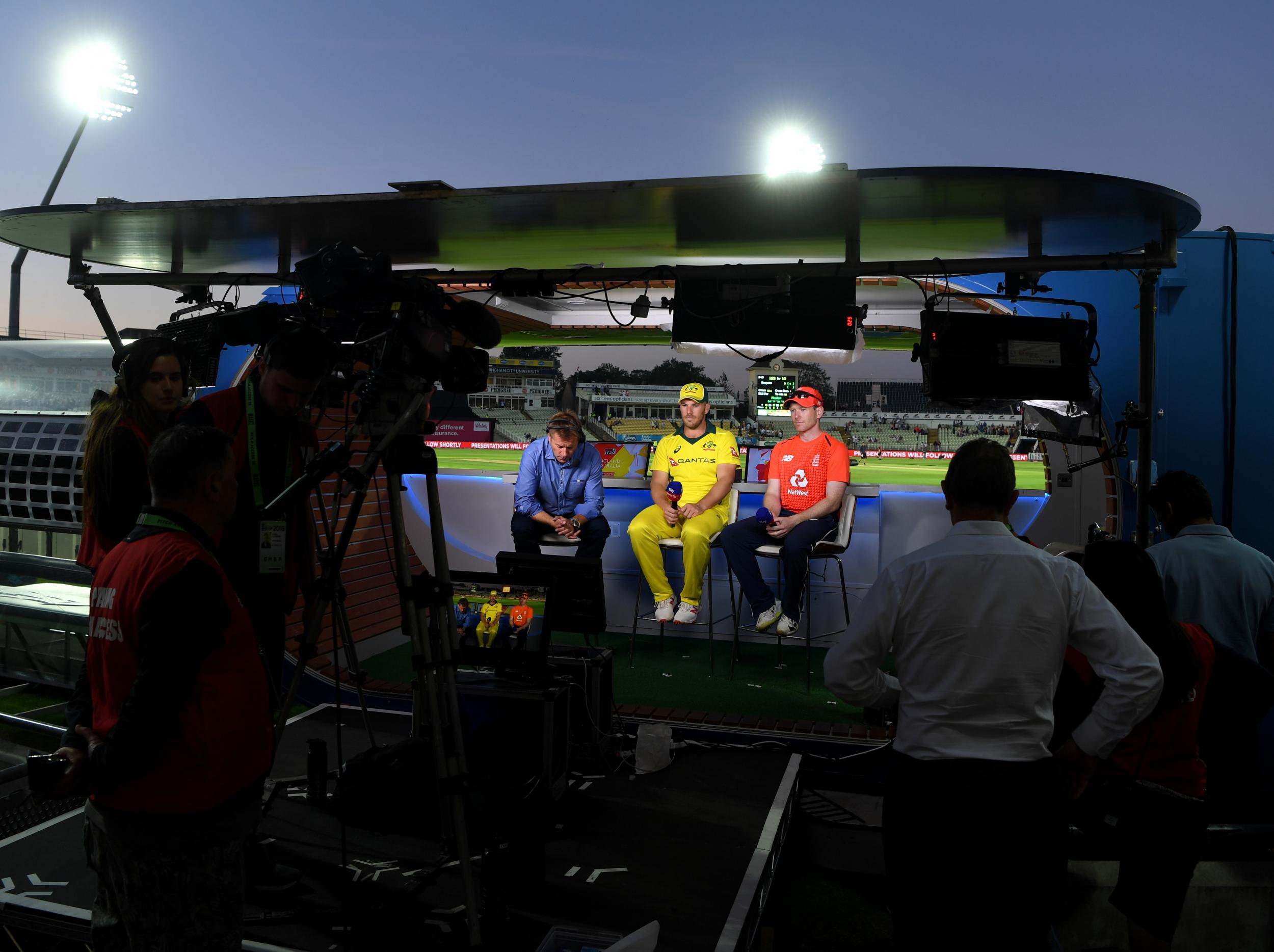
He got over the bumps quickly, though none were particularly galling. He once called Peter Crouch “Peter Crutch” during a shift presenting Sky Sports News and went to air a few times with his flies undone. After impressing higher-ups with a screen test, he made his international presenting debut as host of a match between South Africa and Bangladesh.
“I think I realised it was one to learn on the job,” says Ward of the education. “I don’t think you can go on courses for this stuff. I think you’ve got to get in and try it. Work it yourself. It’s a steep learning curve but it’s probably the way to do it. And the worst that could happen is you look like a tit.”
If there is one thing he has carried through from his playing career it was his role as facilitator. In a Surrey line-up of maverick talents like Mark Butcher, Graham Thorpe, Adam Hollioake and Ali Brown, he was the straight man.
Now he holds down that role to allow the likes of Nasser Hussain, Michael Atherton, Shane Warne and a rolling cast of former and current international cricketers to do their thing. His style with colleagues, subjects and those at home is familiar. As a few England players have put it, he just wants to have a conversation.
“I was in the pub a few months ago and the bloke behind the bar turned to my mate and said I was exactly as I am on TV, just without the beer and fag in hand. I think maybe that’s it. Trying to be personable. I’ve always been interested in people and their stories.
“I played international cricket, but I wouldn’t call myself an international cricketer. I can’t, really. But what I do know about it is how bloody hard it is. So I have empathy when things go bad and am absolutely in awe when they do so well. I’ve tasted it, and it was bloody hard work. And no one wants to hear from me, they want to hear what the players have to say.”
Cricket fans have seen a lot more of Ward this summer despite the lack of live-action as he helms Sky’s watch-a-longs and The Cricket Show, popular gap-pluggers in a schedule ravaged by the coronavirus pandemic.
But when it does return behind closed doors, Ward will be one of the few conduits bringing us inside the bubble. That will bring its own added pressure, but one he regards as a duty.
“I think what I realised at the start of the summer, was just how much people are missing the game. And the reaction to the watchalongs, from not just fans and the players, has been so positive and shows that.
“I think it makes you realise what people want from cricket. Not just the game, but companionship.”
In the best traditions of West, Benaud, Nicholas and Gower, the new man now steering the ship will set the tone of all that follows in the seasons ahead. Just as it was when Ward made that fateful first trip to the Sky studio all those years ago, his timing couldn't be better.
Join our commenting forum
Join thought-provoking conversations, follow other Independent readers and see their replies
Comments